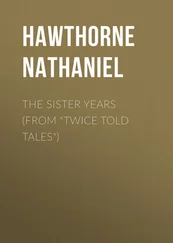Algernon Bertram Freeman-Mitford Redesdale - Tales of Old Japan
Здесь есть возможность читать онлайн «Algernon Bertram Freeman-Mitford Redesdale - Tales of Old Japan» — ознакомительный отрывок электронной книги совершенно бесплатно, а после прочтения отрывка купить полную версию. В некоторых случаях можно слушать аудио, скачать через торрент в формате fb2 и присутствует краткое содержание. Жанр: Сказка, Старинная литература, foreign_antique, foreign_prose, на английском языке. Описание произведения, (предисловие) а так же отзывы посетителей доступны на портале библиотеки ЛибКат.
- Название:Tales of Old Japan
- Автор:
- Жанр:
- Год:неизвестен
- ISBN:нет данных
- Рейтинг книги:4 / 5. Голосов: 1
-
Избранное:Добавить в избранное
- Отзывы:
-
Ваша оценка:
- 80
- 1
- 2
- 3
- 4
- 5
Tales of Old Japan: краткое содержание, описание и аннотация
Предлагаем к чтению аннотацию, описание, краткое содержание или предисловие (зависит от того, что написал сам автор книги «Tales of Old Japan»). Если вы не нашли необходимую информацию о книге — напишите в комментариях, мы постараемся отыскать её.
Tales of Old Japan — читать онлайн ознакомительный отрывок
Ниже представлен текст книги, разбитый по страницам. Система сохранения места последней прочитанной страницы, позволяет с удобством читать онлайн бесплатно книгу «Tales of Old Japan», без необходимости каждый раз заново искать на чём Вы остановились. Поставьте закладку, и сможете в любой момент перейти на страницу, на которой закончили чтение.
Интервал:
Закладка:
"Nay," answered Sanza, "to kill a man who repents him of his sins is a base and ignoble action. When you stole from me the Muramasa blade which had been confided to my care by my lord, I became a disgraced and ruined man. Give me back that sword, that I may lay it before my lord, and I will spare your life. I seek to slay no man needlessly."
"Sir Sanza, I thank you for your mercy. At this moment I have not the sword by me, but if you will go into yonder tea-house and wait awhile, I will fetch it and deliver it into your hands."
Sanza having consented to this, the two men entered the tea-house, where Banzayémon's two companions were waiting for them. But Banzayémon, ashamed of his own evil deed, still pretended that Sanza was a stranger, and introduced him as such, saying—
"Come Sir Samurai, since we have the honour of your company, let me offer you a wine-cup."
Banzayémon and the two men pressed the wine-cup upon Sanza so often that the fumes gradually got into his head and he fell asleep; the two wardsmen, seeing this, went out for a walk, and Banzayémon, left alone with the sleeping man, began to revolve fresh plots against him in his mind. On a sudden, a thought struck him. Noiselessly seizing Sanza's sword, which he had laid aside on entering the room, he stole softly downstairs with it, and, carrying it into the back yard, pounded and blunted its edge with a stone, and having made it useless as a weapon, he replaced it in its scabbard, and running upstairs again laid it in its place without disturbing Sanza, who, little suspecting treachery, lay sleeping off the effects of the wine. At last, however, he awoke, and, ashamed at having been overcome by drink, he said to Banzayémon—
"Come, Banzayémon, we have dallied too long; give me the Muramasa sword, and let me go."
"Of course," replied the other, sneeringly, "I am longing to give it back to you; but unfortunately, in my poverty, I have been obliged to pawn it for fifty ounces of silver. If you have so much money about you, give it to me and I will return the sword to you."
"Wretch!" cried Sanza, seeing that Banzayémon was trying to fool him, "have I not had enough of your vile tricks? At any rate, if I cannot get back the sword, your head shall be laid before my lord in its place. Come," added he, stamping his foot impatiently, "defend yourself."
"With all my heart. But not here in this tea-house. Let us go to the Mound, and fight it out."
"Agreed! There is no need for us to bring trouble on the landlord. Come to the Mound of the Yoshiwara."
So they went to the Mound, and drawing their swords, began to fight furiously. As the news soon spread abroad through the Yoshiwara that a duel was being fought upon the Mound, the people flocked out to see the sight; and among them came Tôken Gombei and Shirobei, Banzayémon's companions, who, when they saw that the combatants were their own friend and the strange Samurai, tried to interfere and stop the fight, but, being hindered by the thickness of the crowd, remained as spectators. The two men fought desperately, each driven by fierce rage against the other; but Sanza, who was by far the better fencer of the two, once, twice, and again dealt blows which should have cut Banzayémon down, and yet no blood came forth. Sanza, astonished at this, put forth all his strength, and fought so skilfully, that all the bystanders applauded him, and Banzayémon, though he knew his adversary's sword to be blunted, was so terrified that he stumbled and fell. Sanza, brave soldier that he was, scorned to strike a fallen foe, and bade him rise and fight again. So they engaged again, and Sanza, who from the beginning had had the advantage, slipped and fell in his turn; Banzayémon, forgetting the mercy which had been shown to him, rushed up, with bloodthirsty joy glaring in his eyes, and stabbed Sanza in the side as he lay on the ground. Faint as he was, he could not lift his hand to save himself; and his craven foe was about to strike him again, when the bystanders all cried shame upon his baseness. Then Gombei and Shirobei lifted up their voices and said—
"Hold, coward! Have you forgotten how your own life was spared but a moment since? Beast of a Samurai, we have been your friends hitherto, but now behold in us the avengers of this brave man."
With these words the two men drew their dirks, and the spectators fell back as they rushed in upon Banzayémon, who, terror-stricken by their fierce looks and words, fled without having dealt the death-blow to Sanza. They tried to pursue him, but he made good his escape, so the two men returned to help the wounded man. When he came to himself by dint of their kind treatment, they spoke to him and comforted him, and asked him what province he came from, that they might write to his friends and tell them what had befallen him. Sanza, in a voice faint from pain and loss of blood, told them his name and the story of the stolen sword, and of his enmity against Banzayémon. "But," said he, "just now, when I was fighting, I struck Banzayémon more than once, and without effect. How could that have been?" Then they looked at his sword, which had fallen by his side, and saw that the edge was all broken away. More than ever they felt indignant at the baseness of Banzayémon's heart, and redoubled their kindness to Sanza; but, in. spite of all their efforts, he grew weaker and weaker, until at last his breathing ceased altogether. So they buried the corpse honourably in an adjoining temple, and wrote to Sanza's wife and son, describing to them the manner of his death.
Now when Sanza's wife, who had long been anxiously expecting her husband's return, opened the letter and learned the cruel circumstances of his death, she and her son Kosanza mourned bitterly over his loss. Then Kosanza, who was now fourteen years old, said to his mother—
"Take comfort, mother; for I will go to Yedo and seek out this Banzayémon, my father's murderer, and I will surely avenge his death. Now, therefore, make ready all that I need for this journey."
And as they were consulting over the manner of their revenge, Umanosuké, the son of Umanojô, whom Sanza had slain, having heard of the death of his father's enemy, came to the house. But he came with no hostile intent. True, Sanza had killed his father, but the widow and the orphan were guiltless, and he bore them no ill-will; on the contrary, he felt that Banzayémon was their common enemy. It was he who by his evil deeds had been the cause of all the mischief that had arisen, and now again, by murdering Sanza, he had robbed Umanosuké of his revenge. In this spirit he said to Kosanza—
"Sir Kosanza, I hear that your father has been cruelly murdered by Banzayémon at Yedo. I know that you will avenge the death of your father, as the son of a soldier should: if, therefore, you will accept my poor services, I will be your second, and will help you to the best of my ability. Banzayémon shall be my enemy, as he is yours."
"Nay, Sir Umanosuké, although I thank you from my heart, I cannot accept this favour at your hands. My father Sanza slew your noble father: that you should requite this misfortune thus is more than kind, but I cannot think of suffering you to risk your life on my behalf."
"Listen to me," replied Umanosuké, smiling, "and you will think it less strange that I should offer to help you. Last year, when my father lay a bleeding corpse on the sea-shore, your father made a covenant with me that he would return to give me my revenge, so soon as he should have regained the stolen sword. Banzayémon, by murdering him on the Mound of the Yoshiwara, has thwarted me in this; and now upon whom can I avenge my father's death but upon him whose baseness was indeed its cause? Now, therefore, I am determined to go with you to Yedo, and not before the murders of our two fathers shall have been fully atoned for will we return to our own country."
Читать дальшеИнтервал:
Закладка:
Похожие книги на «Tales of Old Japan»
Представляем Вашему вниманию похожие книги на «Tales of Old Japan» списком для выбора. Мы отобрали схожую по названию и смыслу литературу в надежде предоставить читателям больше вариантов отыскать новые, интересные, ещё непрочитанные произведения.
Обсуждение, отзывы о книге «Tales of Old Japan» и просто собственные мнения читателей. Оставьте ваши комментарии, напишите, что Вы думаете о произведении, его смысле или главных героях. Укажите что конкретно понравилось, а что нет, и почему Вы так считаете.

![Майкл Суэнвик - Tales of Old Earth [A collection of short-stories]](/books/388351/majkl-suenvik-tales-of-old-earth-a-collection-of-short-stories-thumb.webp)










